- Home
- About us
- Products
- Dealer Enquiry
- Blog
- Contact Us
- Home
- About us
- Products
- Dealer Enquiry
- Contact Us
- 044 -2486 1994
- +91 99623 98222
- sales@nantech.in
- REQUEST A QUOTE
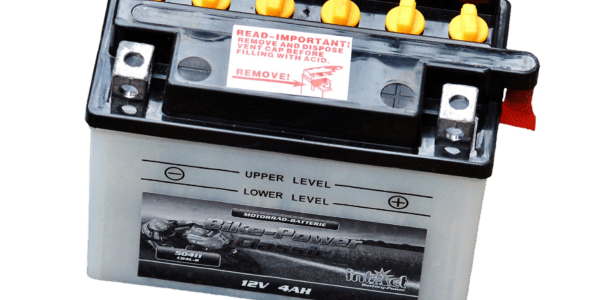
First important factor for a person while choosing an inverter is to check the power (in Watts) consumption. The following link maybe of help - https://www.vguard.in/product/product-power-calculator
Volt- Ampere (VA)- It is a unit of electrical power in a (electrical) circuit.
650 VA is 520 Watts;700 VA is 588 Watts etc
(1kVA is 1000 VA)
| Exide | Microtek | Luminous | |
|---|---|---|---|
| Volt-Ampere available (capacity) |
650, 850, 1050, 1450 (VA) 2, 2.5, 3.5, 5.2, 7.5, 10 (kVA) |
700, 900, 1100, 1250, 1600, 2000 (VA) 2.6, 3.6, 5.5, 5.7, 8, 10 (kVA) |
700, 850, 1050, 1650, 1100,1700 (VA) 2, 2.5, 3.5, 5.2, 5.5, 7.5, 10 (kVA) |
| Features |
|
|
|
| Price | Starts from Rs.4300 for 650 VA | Starts from Rs. 2700 for 700 VA | Starts from Rs. 3400 for 700VA |
| Battery Capacity | 150 Ah for all Inverters in VA For the inverters with kVA more than 150 Ah batteries can be used. Recently a few models come which operate on capacity from 135- 200 AH (for VA models only) 1 unit of 12 V batteries for VA |
150 Ah for all Inverters in VA For the inverters with kVA more than 150 Ah batteries can be used. 1 unit of 12 V batteries for VA |
150 Ah for all Inverters in VA For the inverters with kVA more than 150 Ah batteries can be used. Luminous has made new models of inverters which run on 200 Ah, 220 Ah etc( for VA models) 1 unit of 12 V batteries for VA |
| Warranty | 2 years manufactured warranty | 2 years manufactured warranty | 2 years manufactured warranty |
| Customer ratings | On Flipkart, Exide comes third in comparison to the other both brands in terms of popularity. | On Flipkart the second highest number of inverters with highest ratings are from Microtek | On Flipkart the maximum number of inverters with highest ratings are from Luminous |
| Type of Inverters | Sine Wave Inverters and Pure Sine Wave options are also present. | Sine Wave Inverters and Pure Sine Wave options are also present. | Sine Wave Inverters and Pure Sine Wave options are also present. |
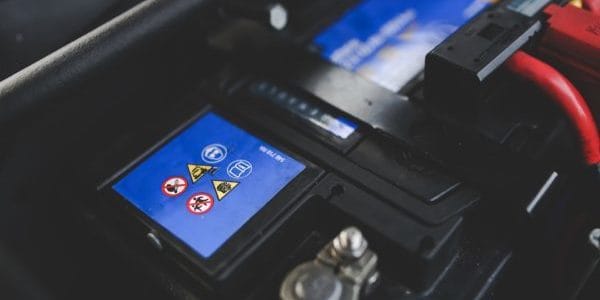
Power cuts and load shedding can be quite troubling. And getting an inverter-battery setup helps a lot. But choosing an inverter battery might be a daunting task for most of us, especially if you are getting it for the first time. Don’t worry, we at Nantech decided to put this comprehensive guide and here’s everything you need to know before getting one:
Knowing how long you need the power backup to last, helps you choose the battery with the right capacity. Let’s say you face power cuts for 2 hours everyday and you need a 12V battery as a power backup for the entire time. And you want to run the following appliances:
| Appliance | Quantity | Power Consumed |
|---|---|---|
| Desktop Computer | 1 | 155W |
| Fan | 1 | 75W |
| Tube light | 2 | 20W |
| Total | 155 + 75 + 2*20 = 270 watts |
Required Capacity of Battery = (Hours of Power Backup) * (Power Required in Watts) / (Voltage of Battery)
Required Capacity of Battery = 2 * 270 / 12 = 45 Ah
Most batteries in the market are around 135-150 Ah and if the above case is equivalent to your real requirement, then you can even go for cheaper and lower capacity batteries!
Cost
It is essential to calculate and decide the budget as per your requirements, since the inverter and battery dealers may persuade you to buy more expensive batteries. The above example will help you with the necessary calculations and prevent unnecessary expenses.
Battery Type
Lead Acid Battery:
These are of two types:
Gel Battery:
The weight of the battery is something you might overlook and not take into consideration first but it tends to be an important factor for those who are frequently on the move! Batteries have different weights when they are filled and empty(dry). If you frequently shift places, consider buying a less bulky battery. In case you still need a heavy battery, look for the ones equipped with a trolley.
Most reputed companies offer free services within the warranty period (also called ‘flat warranty period’). In case your battery faces issues within a few months of purchase, it could be replaced, provided the fault occurs and is registered within the replacement/pro-rata warranty period. It also helps if the company provides installation and maintenance services, since this can be a tough task for most individuals. Hence, warranty period is also an important factor while purchasing a battery!
We hope this comprehensive guide helped you and made the task of buying a battery easier! If you are looking for an authorised battery dealer, we at Nantech sell batteries of numerous reputed companies.
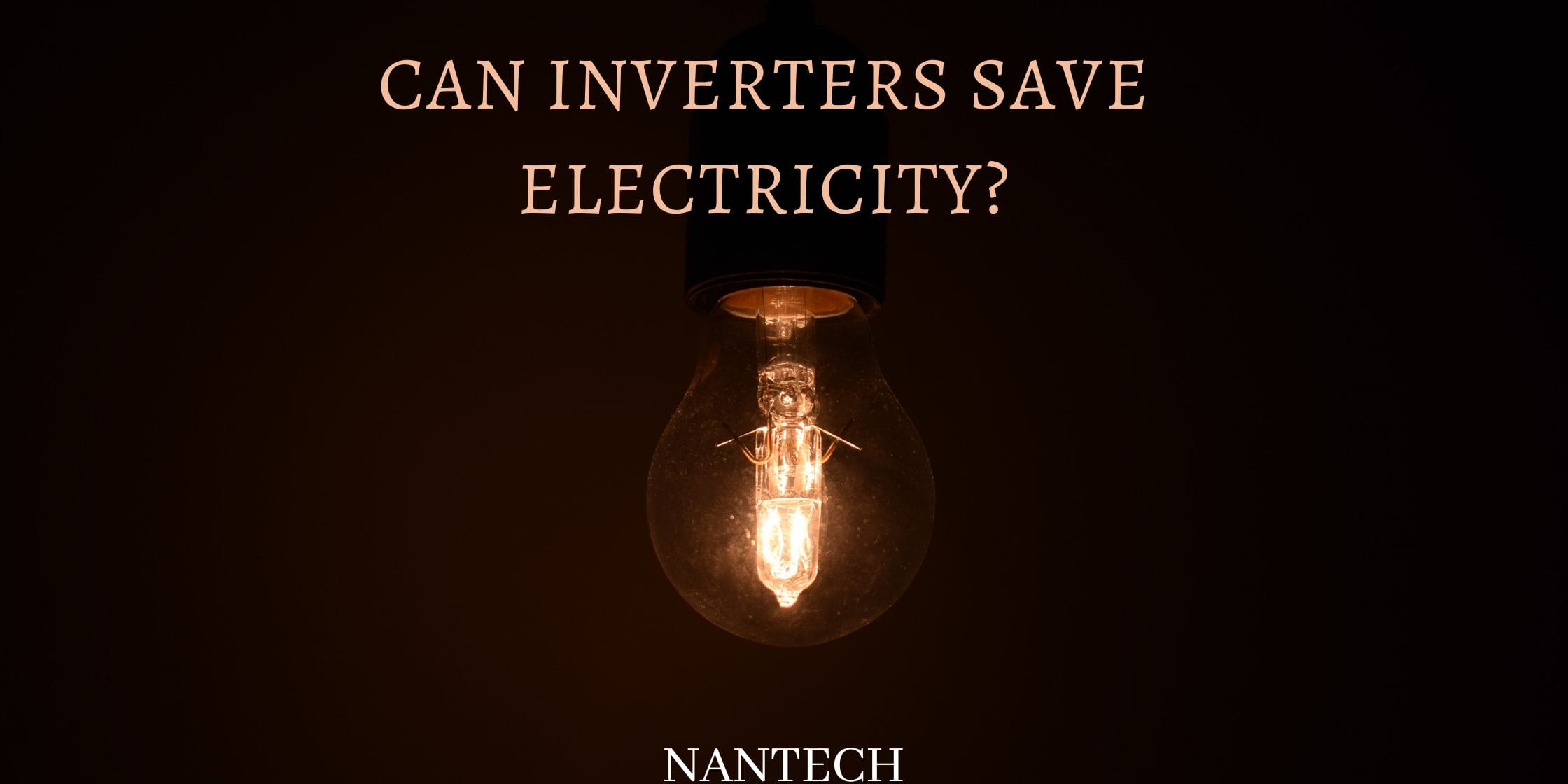
Inverters are devices that are very commonly used as a back-up during a power outage. Chennai faces such power cuts on multiple occasions. Although there is no power supply from the mains during a blackout, inverters keep supplying uninterrupted electricity. Inverters thereby act as reserves of electricity but can they also save electricity? If so, how do they do that? Let us find out.
How Do Power Inverters Function?
Can Inverters Have 100% Efficiency?
How Can Inverters Save Electricity?
How To Eliminate Losses?
It is observed that the higher the inverter capacity, the higher is the loss of energy. Thus, it is recommended to know the power requirement of your residence or workplace.
Also Read: Implications of Power Cut on Smart Homes & Remedial Measures
Overcharging:
Quality check:
Overload:
Maintenance:
Reach out to us if you are in search of an inverter that can 'save' electricity.
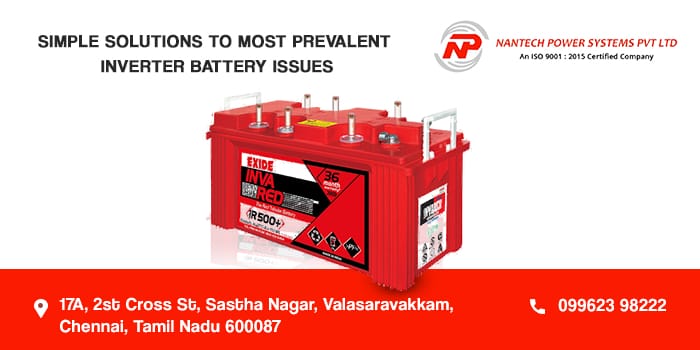
Inverters in Chennai are essential. No home or office can do without them because a single power cut means all the gadgets and appliances; we rely on every day become useless. Inverters provide the power back-up necessary for a continued supply of electricity to them.
But like any other machine, inverters are also prone to common problems. In this article, we explore the solutions to the most common issues that crop up in inverters and batteries.
These are the possible reasons along with remedies why your UPS or inverter is not switching on:
The most common cause of battery not charging is because it is dead. You will have to replace it for the inverter to work. There are three other reasons for it:
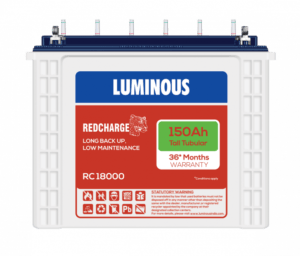
The reasons described in the post above are some of the most common problems that people face with inverters. Thankfully, a majority of them have simple solutions that can be done at home. If that fails, then an inverter repair centre can resolve them quickly.
Also Read: How Useful Is The Inverter?
That said, it should be noted that each issue, like a beeping sound or not charging, may have a different symptom and underlying reason. For instance, if the inverter is making one, constant beeping noise it means capacity overload. Whereas, if the battery beeps in a continuous manner, then the battery is low. Essentially, you have to pinpoint the symptom to get to the issue.
If you are unable to remedy the problem at home, it is highly advised to take the inverter to a supplier in Chennai. They will have experts who can find the issue in a matter of minutes and give you a solution for it!
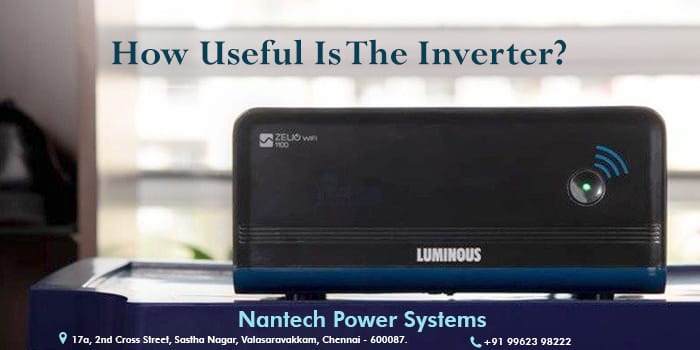
The humble inverter is the device of choice when it comes to dealing with power outages. Of course, there is a generator. It is bigger, and a more powerful device, but it is not something that suits everyone’s purse.
The application of a power inverter extends well beyond supplying electricity during times of power outage. The lifeline of many electronic devices, the inverter is an intrinsic part of electric cars and bikes, industrial motors, power tools, refrigerator compressors, and computer systems.
Also Read: Inverter Batteries – A Comparative Guide
The omnipresent air conditioner is not on the list, as you can notice. That is what we are here to find out: can your inverter run your air conditioner and save you from the unforgiving heat and power outages during the unbearably hot Indian Summers?
Especially in cities like Chennai where summer temperatures can reach intolerable extremes, this option is nothing short of a blessing.
Before we can “Yes” or “No” to the first question, it is crucial to understand the basic design of the inverter and the way it functions.

An air conditioner used for a 150 square feet room can have a range of 5000 BTUs or British Thermal Unit. An air conditioner this small will utilize about 4 or 5 amps of electricity.
A room that measures beyond 2,500 sq.ft will require an air conditioner with 36,000 BTUs. The amperage for such a powerful air conditioner will be around 15-17 on full power. However, when the unit reaches its set temperature limit, the amperage will be 6 or 7.
Hence, the answer is Yes, the air conditioner can work on an inverter. But there’s a catch. The bigger the capacity of your air conditioner, the bigger the inverter you will need.
Investing in a high-quality inverter battery is not a seasonal investment if you are living in a city like Chennai. With temperatures calling for air conditioners for a good part of the year, it is a wise choice to invest in inverter batteries that will last longer and work to accommodate voltage fluctuations and power surges.
Nantech Power Systems P Ltd is a leading inverter battery dealer in Chennai. It is Top -notch company that specializes in the Sales and Service of Inverter Batteries.
Up and running since 1996, Nantech is an ISO 9000: 2015 Certified Company. Nantech’s robust engineering methods, and manufacturing and customizing services are on par with international standards. It comes as no surprise that Nantech’s prestigious clientele includes a host of well-known industries and households all over Chennai.
Join the coveted list and quit dreading summers in Chennai !!! Dial +91 99623 98222 for more information!
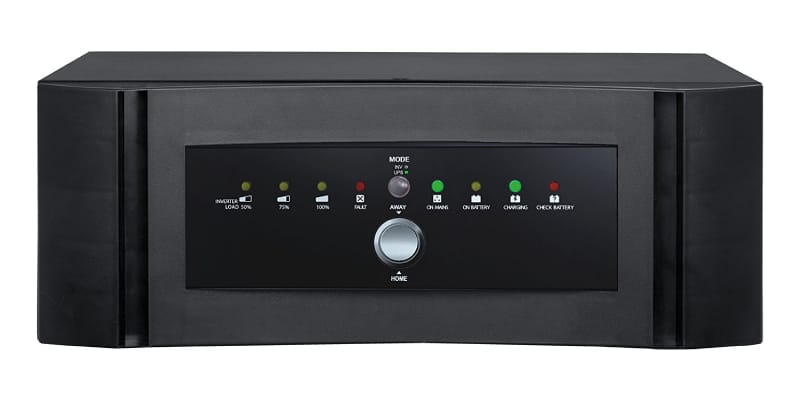
With the temperature rising all over the planet as a result of climate change, it has become necessary to own an inverter in order to stay cool. While the government gives orders for scheduled and unscheduled power cuts throughout the country to make up for the power deficits, owning an inverter is the only way to survive through the harsh summer and chilly winter seasons.
Depending on your power consumption, you will need to pick out an inverter that works well according to your requirements. Many people make the mistake of assuming that an inverter is the same as a generator and can power our entire home. Nothing can be further from the truth; an inverter has a lower capacity than a generator and can only offer upto 3000 VA. The top Inverter battery dealers in Chennai can offer you good deals on quality inverters.
Also Read: Inverter Battery Maintenance Tips For Better Performance
If you are considering purchasing an inverter online, you need to be well aware of your power requirements before making the final decision. As mentioned earlier, an inverter can handle only up to 3000 VA typically, so you need to calculate the power usage at your home or office to decide, which type of inverter to pick. Here is the wattage rating for a few home appliances to help you figure this out:
Other appliances like washing machine, heater, iron box, etc. require a larger amount of power. Hence it would be wiser to calculate the starting power requirement while picking out an inverter online.
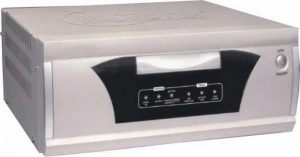
You also need to be aware of the difference between Watt and VA before going ahead with your purchase. Power in Watts is described as the real power that is drawn by the equipment, whereas VA or Volt Ampere is the apparent power that is obtained by multiplying the current drawn or supplied by the equipment and the Voltage. The best inverter battery for home uses VA to convey the power offered by their inverters.
Based on the type of AC waveform that is generated by the inverter, it can be classified as any one of the three types mentioned below:
A pure sine wave inverter offers a more reliable and safe service. It is also considered to have a longer life compared to the other types of inverters. However, since each manufacturer uses different methods to produce the pure sine wave, quality of the inverter depends on the components used to build it.
If you cannot afford a pure sine wave inverter, the next best option is a digital sine wave inverter. The output of this type of inverter is a stepped sine like waveform that causes fans to have a humming sound and tube lights to flicker as well. However, it won’t be a problem for the other electronic equipment like bulbs, TVs, etc.
This type of inverter is deemed to be inefficient and not suited for generating power for electrical appliances. In fact, it has also been found to reduce the life of electrical appliances drastically.
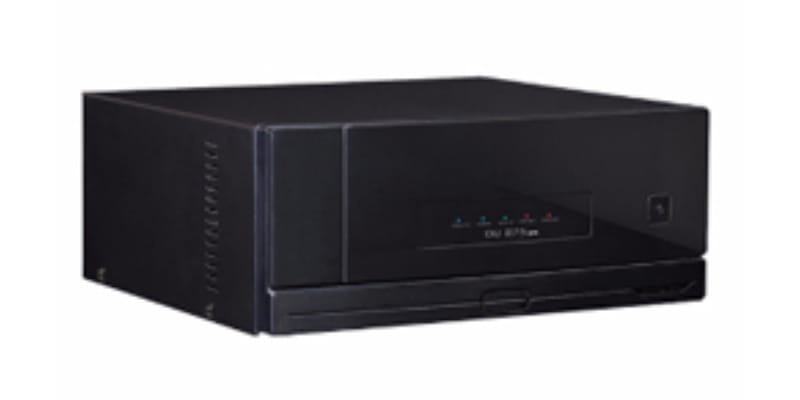
The inverter market demands are on the rise nowadays due to the frequent power interruptions that cause huge losses and wastage of time and raw materials used for production works. Power cuts and blackouts often cause huge issues in industries like hospitals, water supplies, production units, etc. Hence, inverters are an absolute necessity to ensure that all the industries work smoothly without any loss of time or money. If you are someone who owns a company in Chennai, or even live in Chennai and is looking for a solution for the power breakdown issues, the first 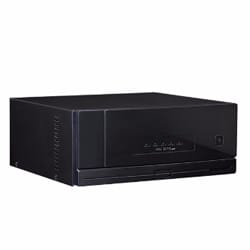 thing you need to do is to find the inverter dealers in Chennai. Try to find the best brand of invertors by inquiring around your neighborhood and friends. You could even check the internet and get some idea of the ideal dealer and brand for you. Then you could proceed and buy the inverter for your home, company or industry.
thing you need to do is to find the inverter dealers in Chennai. Try to find the best brand of invertors by inquiring around your neighborhood and friends. You could even check the internet and get some idea of the ideal dealer and brand for you. Then you could proceed and buy the inverter for your home, company or industry.
In India, the need for inverters and UPS systems is on the rise as modern life seems impossible and incomplete without them. The hospitals, MNCs, hotels, farms, media houses and many others use UPS systems. The metros also need regular electric supply to function properly. India is on the path of huge economic growth, and the uninterrupted power supply is a necessity for the growth.
Also Read: Things To Keep In Mind Before Buying The Best Inverter Brands
The need of UPS is increasing as the technology advances and as the country grows economically. The UPS dealers in Chennai offer high-quality UPS for all types of industries, companies and also for domestic purposes. The manufacturers of UPS often maintain a tie-up with the makers of component parts. They have to ensure that they always get the most technologically advanced parts and keep on updating their products along with the growth of technology. Both the inverter market and UPS market has to face stiff competition as there are too many dealers in the field.
Advancements In The Technical Arena
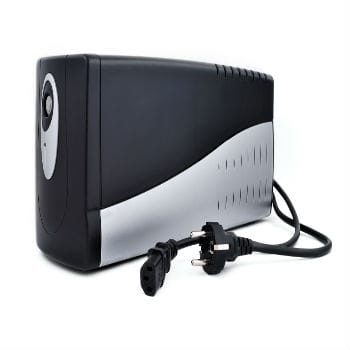 The continuous power shortage issues have given rise to an increased demand for both inverters and UPS systems. The government has hence taken the initiative to work on the National Solar Mission. When the inverters with solar power become reliable, the UPS usage also will increase. In short, solar energy is one of the most determining factors governing the increase in demand for inverters and UPS systems.
The continuous power shortage issues have given rise to an increased demand for both inverters and UPS systems. The government has hence taken the initiative to work on the National Solar Mission. When the inverters with solar power become reliable, the UPS usage also will increase. In short, solar energy is one of the most determining factors governing the increase in demand for inverters and UPS systems.
Net metering, as well as the integration of sine wave UPS systems and inverters, is coupled up with software and communication technology as a part of the emerging technological advancements in the field.
Nowadays, there is no need to go and visit the store to buy an inverter or UPS. You can just sit in the comfort of your home and browse the wide range of inverter and UPS dealers and brands online. You get the product delivered at home without any hassles.
The UPS manufacturers face many hassles in the field. The major issues that crop up are the management of raw materials, procurement of machinery, skilled workers, and even getting a large land area to build up the manufacturing unit is a difficult task.